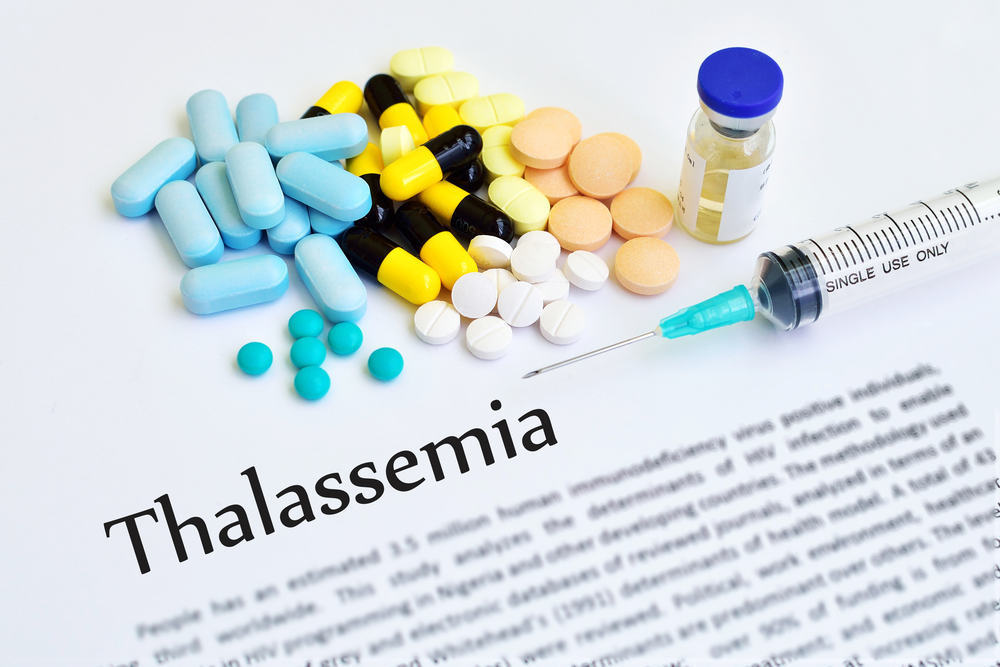Contents:
- Medical Video: Beta Thalassemia | Zayed's Story
- How does thalassemia affect my body?
- How to treat thalassemia?
- What is the effect of blood transfusion on my body?
Medical Video: Beta Thalassemia | Zayed's Story
How does thalassemia affect my body?
The body of thalassemia sufferers will have fewer red blood cells. As a result, you may experience symptoms of lack of red blood cells, or anemia. Besides feeling tired or weak from anemia, you may also experience:
- Dizzy
- Hard to breathe
- Fast heartbeat
- Headache
- Leg cramps
- Difficulty concentrating
- Pale skin
Your body will work very hard to make more red blood cells. Blood cells are made in the bone marrow, the dark part of the sponge in the middle of the bone. Bone marrow that works harder than usual causes the bones to grow, broad, and tenuous. This makes the bones thinner and prone to breakage.
Apart from the bone marrow, blood is also produced in the spleen. The location of the spleen is in the left abdomen, just below the lower rib cage. The two main roles of the spleen are to filter the blood and detect certain infections in the blood. If you have thalassemia, the size of the spleen will increase because it works so hard to make blood cells. This condition results in the spleen not being able to work to screen or monitor blood for infection. Therefore, thalassemia sufferers are called "immunocompromised, "Which means that the body's defense against infection does not work. When you are in condition immunocompromisedit is easier for you to get an infection so you need extra protection, such as flu shots and other vaccines.
How to treat thalassemia?
The type of treatment depends on how severe thalassemia is experienced by each person. The more severe thalassemia, the less hemoglobin the body has, and the more severe anemia it suffers.
One way to treat anemia is to give more red blood cells to carry oxygen. This step can be done through a blood transfusion - a general procedure that is classified as safe to receive blood through a small plastic tube that is inserted into one of the blood vessels. In some cases of thalassemia (usually thalassemia major), patients need regular blood transfusions because the amount of hemoglobin in their body is very low. Patients with thalassemia intermedia (not as severe as thalassemia major and not as light as thalassemia minor / trait) may need blood transfusions when they are infected with an infection or disease. Meanwhile, thalassemia minor or trait patients usually do not need blood transfusions because they only have mild anemia or not at all.
Thalassemia patients are generally prescribed additional B vitamins, known as folic acid, to help treat anemia. Folic acid can help red blood cells develop. Treatment with folic acid is usually done in addition to other therapies.
What is the effect of blood transfusion on my body?
Patients who receive too many blood transfusions run the risk of excess iron. Excess iron from all transfusions can accumulate in the organs of the body, such as the heart, liver, and brain to interfere with the function of each organ. To prevent iron overload, thalassemia patients need chelation therapy. Chelation therapy uses drugs, either pills or injections under the skin, to get rid of excess iron before it accumulates in the organ.
Every time someone gets a blood transfusion, risk "alloimmunization"Will rise. Alloimmunization occurs when the immune system considers blood from transfusion as a threat and tries to destroy it. Patients who experience alloimmunization can still receive blood transfusions, but the blood received must be examined and compared with their own blood to ensure that blood transfusions will not be destroyed by the immune system. This procedure takes time so that the patient alloimmunization have to wait longer to find the right blood. Because, these patients need blood that will not be destroyed by their own bodies.
Another concern for people who receive a lot of blood transfusions is the health of the blood they receive. Some infections, such as hepatitis, can be transmitted through blood. In the United States, blood supply is screened and monitored for the safety of recipient donors, and the risk of infection from blood transfusions is very low. However, there is still a very small risk for infection through blood transfusions.












